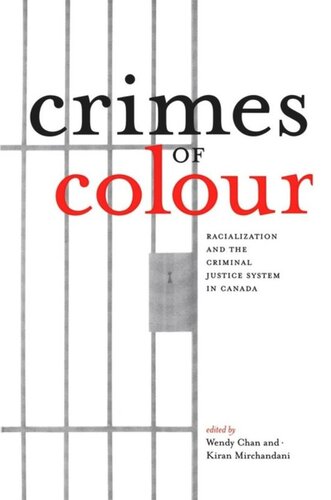

Most ebook files are in PDF format, so you can easily read them using various software such as Foxit Reader or directly on the Google Chrome browser.
Some ebook files are released by publishers in other formats such as .awz, .mobi, .epub, .fb2, etc. You may need to install specific software to read these formats on mobile/PC, such as Calibre.
Please read the tutorial at this link: https://ebookbell.com/faq
We offer FREE conversion to the popular formats you request; however, this may take some time. Therefore, right after payment, please email us, and we will try to provide the service as quickly as possible.
For some exceptional file formats or broken links (if any), please refrain from opening any disputes. Instead, email us first, and we will try to assist within a maximum of 6 hours.
EbookBell Team

4.0
86 reviewsThe original essays in Crimes of Colour explore the link between “race” and “crime” in the Canadian context. Much of the literature on race and crime to date has treated the category of “race” unproblematically; debate on this topic has focused primarily on the assumption that members of certain racial groups are most likely to commit crimes.
In charting a different path, the authors in this collection provide critical and historical analyses of the connections between processes of “racialization” and “criminalization” in Canada. The book seeks to engage the reader in thinking critically about how conceptualizations of racial identity and crime are interwoven. The editors begin by arguing for a need to shift from an analysis of “race” to an analysis of “racialization” in order to create the space for new ways of looking at the connections between race and crime. They investigate the history of the treatment of racialized people in Canada, looking at the processes through which First Nations people, immigrants, and people of colour have been defined in racialized terms and the way in which state policy has racialized individuals and groups. The insights provided by the historical backdrop situates the problematic legal positions First Nations people and people of colour occupied vis-a-vis the criminal justice system.
Contemporary analyses of “race” and crime continue to highlight the on-going, complex, and subtle nature of the issues. Understanding how individuals are racialized in the legal system forms one of the main themes in this collection. Specifically, these discussions involve identifying the processes through which racialized groups and individuals are criminalized. The processes of racialization and criminalization come together in many contexts including various criminal justice institutions like the police and social institutions like the media.